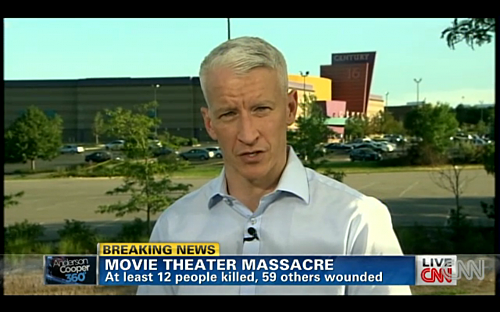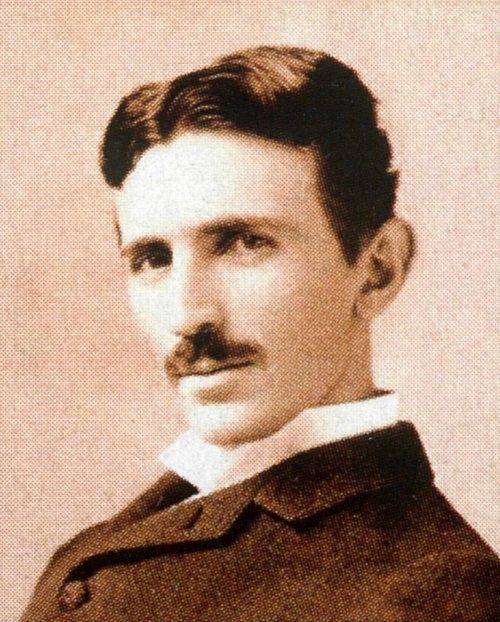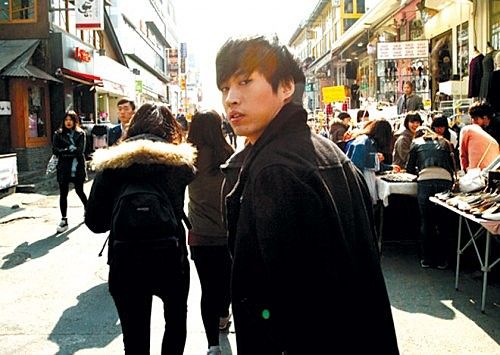Internet Histories | 20 August
Lightspeed trading, Kate Beaton, deconstructing ladyblogs, party rats, korean hip-hop superstars and the building of a goddamn Tesla museum.
This fortnight:
Lightspeed trading | Kate Beaton | deconstructing ladyblogs | korean hip-hop superstars | party rats | a goddamn Tesla museum
Matt
I kept trying to think of a decent theme to tie together everything I wanted to mention, but the only one that sprang to mind was “everything we do is fucked” and that seemed bleakly fatalistic. So I chucked in some stuff at the end to make it seem like the world is less shitcakes than it probably is. Sorry!
Heaps of Americans – at least it seems like more than the usual amount – have been killing each other lately. In this confusing time of shootingsgun violence unpredictable madmen, it’s more important than ever to distinguish white people from terrorists. Consider the following:
- White terrorists are “troubled loners.” Other terrorists are always suspected of being part of a global plot, even when they are obviously troubled loners.
- White terrorists are random events, like tornadoes. Other terrorists are long-running conspiracies.
- White terrorists are alcoholics, addicts or mentally ill. Other terrorists are apparently clean-living and perfectly sane.
Full list of 10 here.
[caption id="attachment_4338" align="alignnone" width="500"] From the Newseum, in Washington D.C. One of the twisted transmission antennae from the twin towers in the foreground, while the front pages of regional daily newspapers on September 12, 2001 line the background.[/caption]
From Jon Stewart’s victorious posturing on the Daily Show to the boys dancing rapturously at the White House gates, there was something deeply unsettling to the reaction to Bin Laden’s death, at least to we outsiders. This thoughtful piece makes me feel uncomfortable, because it speaks so perfectly to my own feelings around September 11 and the subsequent hunt for and killing of Osama Bin Laden – but as a white Kiwi, these feelings of mine can’t speak to the same legitimacy as those of the author, an American of Middle Eastern descent. When he writes of looking in from outside the system of hatred and retribution, that’s the feeling that we who didn’t lose people when the towers or Baghdad fell can empathise with.
This longform article isn’t about the financial system, because the financial system’s boring as hell.
“They’re doing amazing things now with drones,” Dziejma said.
“Drones?”
Sure, he said. A fleet of unmanned, solar-powered drones carrying microwave relay stations could hover at intervals across the Atlantic. I started to come up with all the reasons that was a crackpot idea, then realized I’d heard 10 crazier things since 9 am that day. “Someone will do this eventually,” he said.
Well, maybe it’s a little bit about the financial system. Lightspeed trading! Only marginally less interesting than it sounds, it was recently responsible for a rogue algorithm costing one company US$440 million in about 40 minutes. Do you remember the heady days of the early twentieth century, when Wall St channelled investor money into innovative, exciting companies, making everyone – consumers, corporations, and bankers – wealthier in the process? I don’t either.
“One of the major themes of this year’s conference was “the race to the bottom,” the cost-is-no-object competition for the absolute theoretical minimum trade time. This variable, called latency, is rapidly approaching the physical limits of the universe set by quantum mechanics and relativity. But perhaps not even Einstein fully appreciated the degree to which electromagnetic waves bend in the presence of money.”
Vombags.
In 2009 a Ugandan politician sponsored a bill that would have made homosexuality punishable by death. Popularly known as the “kill the gays” law, while not passed, it is currently – under pressure from various Western nations and NGOs – under revision.
New Zealand is finally beginning its own long-delayed dialogue around equality – marriage equality is not really just about marriage, but also equality of citizenship, no matter what Garth George says – but in other countries there’s vastly more at stake. Can you imagine the courage it would have taken to attend a Gay Pride march in Uganda? In a country where the media forcefully advocates the killing of LGBT people (see above), these people aren’t just risking their jobs or families – their very lives are forfeit.
That said, a recently-held march seems to have gone off without a hitch! By the time the cops did turn up, they arrested a few people but had to later release them. In the meantime, organisers hosted parties, movie screenings and a beach parade. Global Voices article on it here, and the New Yorker seems to have had a journalist embedded in the march. I’d strongly recommend checking out Global Voices – a non-profit organisation of citizen-journalists from around the world, they compile news sources from dozens of languages, translate it to English, and set it in a context those unfamiliar with the issues can understand. They’re basically everything right with the internet as a news medium.
Keith Ridgway in short piece on why everything’s a narrative, and novels are forever:
A book is whittled down from hope, and when I start to cut my fingers I push it away from me to see what others make of it. And I wait in terror for the judgements of those others—judgements that seem, whether positive or negative, unjust, because they are about something that I didn’t really do. They are about something that happened to me. It’s a little like crawling from a car crash to be greeted by a panel of strangers holding up score cards.
Finally I think this is probably the best one-off comic I have ever read, anywhere, ever.
Kate Beaton, you are the cleverest.
Rosabel
The highlight of my week has been Molly Fischer's stunning deconstruction of ladyblogs like Jezebel and the Hairpin - sites that cultivate an online sisterhood through writing that's intimate and fun, but in doing so risk losing a particular kind of fearless critical engagement.
I tried to explore what had attracted me to, and then repelled me from, the online women’s media I consumed, which mostly meant Jezebel and the Hairpin. Jezebel’s editors had started off angry about a lot of the same things that had frustrated second-wave feminists about popular journalism; early posts criticized women’s magazines for airbrushing models and shilling advertisers’ wares. It wasn’t so much this stance that interested me as the attitude with which it was delivered: loud and funny and unapologetic. Still, after showing a brief willingness to challenge and sometimes even to surprise, Jezebel retreated into platitudes and predictable self-righteousness. The Hairpin began a step ahead, taking the absurdity of mainstream women’s publications as a given and claiming a mandate to redefine what a women’s website’s interests might be. But in the absence of a specific agenda, the site drifted back to familiar women’s magazine territory: advice columns, beauty tips, and thumbs-up for consumption. The wit of the execution gave this stuff an obvious edge over women’s magazines. But if a women’s website was free to claim any territory and tone it wanted, and it contented itself with winking at convention—was being in on the joke good enough?
In detailing the backlash she received from her first piece on ladyblogs, Fischer describes a community that struggled to deal with her criticism constructively. I know I'm starting to sound like a broken record, but not only do we need intelligent critics like Molly Fischer, we need to be able to engage with them in meaningful ways, and this is a point beautifully illustrated in Dwight Garner's recent piece for The New York Times, A Critic's Case for Critics Who Are Actually Critical (thanks to Duncan Greive for bringing this to my attention)
The sad truth about the book world is that it doesn’t need more yes-saying novelists and certainly no more yes-saying critics. We are drowning in them. What we need more of, now that newspaper book sections are shrinking and vanishing like glaciers, are excellent and authoritative and punishing critics — perceptive enough to single out the voices that matter for legitimate praise, abusive enough to remind us that not everyone gets, or deserves, a gold star.
This also features a quote by Dave Eggers that will make you spew up in your mouth a little.
This has been a special year for me, for a number of reasons, a lot of them related to the fact that after seven years at university, I've finally signed myself over to the world of The Young Professional. I now get paid a salary and have to sleep regular hours, though it's rare that I do - juggling work and writing and reading all of the internet has been more challenging than I ever anticipated, but I remain idealistic - I'm at that point when you're staring at all the bags in your driveway, determined to fit them all perfectly into the tiny boot of your car (dreading the moment where someone comes running out with another the minute you've packed the last one in).
I attended a panel discussion a few months ago where Emily Perkins, Jacinda Ardern, Tandi Wright and Rachel Paris talked about what it means to be a successful woman in the twenty-first century, and one of the comments they made was that policy plays a huge - and sometimes invisible - role in shaping the difficulties women face in striking a good work-life balance. Anne-Marie Slaughter's fantastic piece in The Atlantic on Why Women Still Can't Have It All offers a thoughtful breakdown of these issues and discusses the kinds of changes we need to see.
Speaking of 'having it all', a combination of the above (via Rose Matafeo) and the below is, without irony, my definition of the good life (all I wanna do is ride my invisible horse and do night blogging).
Hayden
The continued rise in popularity of philanthropic, crowd-fundraising sites is a pleasing sign the internet is enthusiastically trying to find ways to fix a problem it created - how does anything maintain value if it no longer has to exist in the physical realm and can be distributed freely? Aside from the widely unpopular 'solutions' experimented with so far by lobbyists and legislators, it seems the world's best hope is to revert to a patronage model, albeit with a globally sourced pool of patrons.
Beyond that little conundrum, these sites have matured into exciting new avenues of funding for independent, often experimental enterprise.
One project that caught my eye this week is an Indiegogo campaign called Let's Build a Goddamn Tesla Museum. The campaign, backed by Oatmeal creator and crowd-funding champion Matthew Inman, looks set to easily reach its goal of raising $850,000 to help buy Nikola Tesla's old laboratory and turn it into a museum, with New York State matching the funds raised. On the surface, this government-crowd co-investment certainly seems like an apt new arrangement in this economy, but in reality it's not a radical departure from the way many public institutions have been funded for some time, with trusts and non-profit organisations having to raise funds to supplement the government or council support they receive. The main difference, of course, is the massively broadened fundraising pool, which will hopefully allow more niche or outlying projects like the Tesla Museum to succeed.
In a similarly philanthropic vein, financial journalist Bernard Hickey is launching Journalism.org.nz - "a not-for-profit trust dedicated to supporting and building public interest news, analysis, comment and debate."
For someone like me who spends far too much time bemoaning the steady decline of New Zealand news media into a shit-swilling tabloid wasteland, this comes as particularly exciting news. While there are plenty of successful international examples, what remains to be seen is whether such a concept can work sustainably in a small market with a limited membership base (and an apathetic population who are used to the shit they've been served for so long).
Joe
Over three years, a successful public figure became the focus of a concerted and fanatical campaign by tens of thousands of people on the Internet to prove that his entire past was an intricate web of deceit. But Barack Obama is a big kid who should really be able to look after himself, whereas The Stalking Of Korean Hip Hop Superstar Daniel Leeis a lot stranger and sadder. Writing for Wired, Joshua Davis does a spot of alma mater journalism about fellow Stanford alumni Dan Lee, who completed his English Masters as an international student and went on in a couple of short years to establish the most successful Korean hip hop act of time, Epik High. Yet by the age of 30, he was living as a hermit in a working-class neighbourhood of Seoul. What happened?
Davis takes us on a journey that encompasses interviews with Lee (rap nom de plume ‘Tablo’) himself as well as his leading ‘antifans’ – Internet vigilantes accusing him of lying about his Stanford diploma, stealing someone’s identity, dodging the draft, and faking virtually every piece of his biographical information. The bullying, which extends to death threats and YouTube videos, seems borne of a deep-seated class resentment and a certain cultural conservatism (“People pay a lot of money to study overseas, and they work day and night…[he] didn’t study, he just did hip hop and became famous in Korea”) but takes on a sort of shocking recreational sadism – Lee’s most dedicated attackers describe themselves as players at ‘Tablo Online’.
I’ll offer no spoilers for what lies at the bottom of this – except that, obviously, the allegations against Lee are unfounded – but it’s worth discovering yourself. I also like that Davis doesn’t doff an anthropological hat and make grand suppositions about how South Korean culture works – this reads just as well as an Internet-stalker potboiler, but with eerie echoes of some attitudes to art and culture here and elsewhere.
The TED talks are coming to Auckland, but people who are thinking about parting with 70-odd green to encounter a bunch of ‘thought leaders’ could do a lot worse than read Maureen Tkacik’s Omniscient Men Of The Atlanticon The Baffler. The Atlantic’s editor, David Bradley, has leapt on board the post-millennial knowledge wave gravy train with a chutzpah (their edition is a super-exclusive event called the ‘Ideas Forum’). Tkacik writes of an ordeal in which the magazine’s own editorial staff are “relegated to providing rapid-fire stenography services, to ensure the event was branded and promoted in real time on the website”.
Over a piece that’s perhaps more about rage than cohesion (but it’s funny, whipsmart rage), she expertly turns the ‘inspirational, post-ideological’ garble of billionaire private equity tycoons and CEOs into an angry elegy for the massacre of meaning, and scratches at the unfortunate possibility that, well, there’s possibly something very ideological about presenting a homogenous set of these guys atop some clean slate for great new ideas.
[caption id="attachment_4335" align="alignnone" width="500"] "The foccacia was starting to resemble something from Aliens, which is always a good sign." - Food's horrible forensics, on Lense Fare[/caption]
Lastly, I have a friend named Dylan Taylor who lives in Berlin and makes really playful, poignant art and is a very funny writer. And now…what in the Pinteresting fuck?!...he’s started a food and lifestyle blog called Lense Fare. Too often the preserve of bores (with the odd exception like Hungry and Frozen), it’s really hard to create one of these that creates more in the reader than a flaccid, jealous little quiver of hunger (ie: it’s as fish-in-the-barrel as uploading porn onto a Tumblr). Dylan’s blog is lovely – he takes very good photos but also writes with careening, glorious irreverence. Examples: “It's worth mentioning that the Danes are absolute perverts when it comes to marzipan, they would drown their own mother for a block of good quality marzipan chocolate.””Transparency to the kitchen is something I always appreciate in a restaurant, just so I can be SURE nobody is wanking into my caesar salad #irrationalkitchenfear.” “There has been so much change in the air, forks in the road, forks in my heart, forks in my mind; my life sometimes feels like a cutlery drawer falling from a second story window, fucking forks everywhere!” Most importantly, I get the sense of seeing someone having a wonderful time in a pretty unmediated and unassuming way (despite all the good food and European old-world beauty)He doesn’t update super-often, but when he does it’s bound to be worthwhile.
















